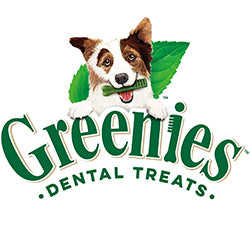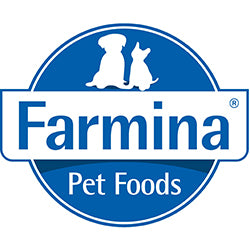
Common Health Problems in Pets and How to Prevent Them
Pets are an important part of our lives, providing love, companionship, and endless entertainment. However, just like humans, pets can suffer from various health issues. We will discuss some common health problems in pets and how to prevent them, ensuring your furry friend stays healthy and happy.
- Obesity
Obesity is one of the common health problems in pets, affecting both dogs and cats. This excess weight can lead to many health issues, including diabetes, heart disease, respiratory problems, and joint problems. To prevent obesity in your pet, it is essential to follow these steps:
a. Provide a balanced diet: Ensure your pet consumes a high-quality, age-appropriate diet rich in essential nutrients. Avoid feeding table scraps or excessive treats, as this can lead to weight gain.
b. Regular exercise: Engaging your pet in regular physical activity helps them burn calories and maintain a healthy weight. Taking your dog for daily walks or providing your cat with stimulating toys can help keep them active.
c. Portion control: Measure your pet's food and follow the feeding guidelines provided by your veterinarian or the pet food manufacturer.
d. Regular check-ups: Schedule regular vet visits to monitor your pet's weight and overall health.
- Dental Problems
Dental problems, such as periodontal disease, are common in pets, affecting around 70% of cats and 80% of dogs by the age of three. Poor dental hygiene can lead to some oral issues, such as bad breath, tooth loss, and even systemic diseases. To prevent dental problems in your pet, follow these tips:
a. Brush your pet's teeth: Regularly brush your pet's teeth using pet-safe toothpaste and a toothbrush specifically designed for pets. This helps remove plaque and tartar buildup.
b. Provide dental chews: Dental chews can help remove plaque and stimulate saliva production, which helps to clean the teeth.
c. Regular dental check-ups: Schedule routine dental check-ups with your veterinarian to assess your pet's oral health and identify any issues early on.
d. Feed a dental diet: Some pet foods are formulated to help maintain your pet's dental health by reducing plaque and tartar buildup.
- Fleas, Ticks, and Heartworms
Fleas, ticks, and heartworms are external and internal parasites that can cause serious health problems for your pet. Flea infestations can lead to skin irritation, allergies, and anemia, while ticks can transmit Lyme disease. Heartworms, transmitted through mosquito bites, can cause heart and lung damage and even death.
To protect your pet from these parasites:
a. Use preventative medications: Talk to your veterinarian about the most appropriate flea, tick, and heartworm prevention products for your pet.
b. Regular grooming: Grooming your pet regularly can help detect any signs of fleas or ticks.
c. Keep your environment clean: Regularly clean your pet's living spaces and wash their bedding to minimize the risk of infestations.
d. Mosquito control: Use screens on windows and doors, and eliminate standing water around your home to reduce mosquito populations.
- Skin Issues
Skin issues, such as allergies, infections, and hot spots, are common in pets. To prevent these issues:
a. Regular grooming: Grooming helps remove dead hair, dirt, and debris from your pet's coat, reducing the risk of skin irritation and infections.
b. Feed a balanced diet: A nutritious diet can help maintain healthy skin and coat.
c. Avoid allergens: Identify and minimize exposure to potential allergens, such as pollen, dust, or certain food ingredients.
d. Keep your pet's living area clean: Regularly clean your pet's bedding and living spaces to reduce the risk of infections.
- Ear Infections
Ear infections are common in pets, particularly dogs with floppy ears. These infections can be painful and, if left untreated, can lead to more severe issues such as hearing loss. To prevent ear infections in your pet:
a. Regular ear cleaning: Clean your pet's ears using a pet-safe ear cleaner and cotton balls or gauze. Avoid using cotton swabs as they can push debris further into the ear.
b. Keep ears dry: After bathing your pet or swimming, ensure that their ears are thoroughly dried to prevent moisture buildup, which can promote bacterial growth.
c. Regular grooming: Regularly trim the hair around your pet's ears to promote air circulation and minimize the risk of infection.
d. Veterinary check-ups: Have your veterinarian examine your pet's ears during routine visits to detect any signs of infection early on.
- Urinary Tract Infections (UTIs)
Urinary tract infections are more common in cats but can also affect dogs. UTIs can be painful and, if left untreated, can lead to more severe health problems such as kidney infections. To prevent UTIs in your pet:
a. Provide fresh water: Ensure your pet has access to fresh water at all times. This encourages frequent urination, which helps flush out bacteria from the urinary tract.
b. Clean litter boxes: Regularly clean and maintain your cat's litter box to minimize bacterial growth.
c. Encourage regular bathroom breaks: For dogs, take them outside to urinate frequently, especially after meals, to help prevent bacteria from building up in the urinary tract.
d. Monitor your pet's urination habits: Pay attention to any changes in your pet's urination habits, such as frequent or painful urination, and seek veterinary care if needed.
Ensuring your pets' health is vital to responsible pet ownership. By understanding the common health problems pets can face and implementing preventative measures, you can help ensure your furry friend leads a healthy and happy life. Regular veterinary visits, a balanced diet, exercise, grooming, and maintaining a clean environment are all critical components of pet health care. When you're proactive and attentive to your pet's needs, you can minimize the risk of health problems and enjoy the many benefits of sharing your life with a beloved pet.
- Choosing a selection results in a full page refresh.












